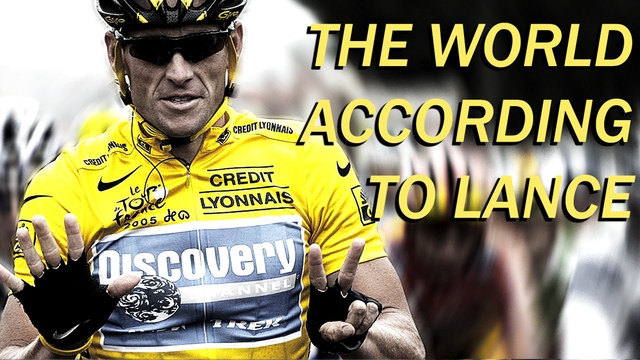The World According to Lance
The real story of Lance Armstrong's doping shame
 "Like a dead body in the basement," the truth about Lance Armstrong's cheating is out. In this explosive documentary, those who broke the "code of silence" to expose the seven times Tour de France Winner reveal why they put their own lives and liberty on the line for cycling. They paint a portrait of Armstrong as a ruthless serial cheat – who not only used drugs but blood transfusions – and expected his team-mates to do the same.
"Like a dead body in the basement," the truth about Lance Armstrong's cheating is out. In this explosive documentary, those who broke the "code of silence" to expose the seven times Tour de France Winner reveal why they put their own lives and liberty on the line for cycling. They paint a portrait of Armstrong as a ruthless serial cheat – who not only used drugs but blood transfusions – and expected his team-mates to do the same.

Hamilton says Armstrong used a courier on motorbike nicknamed "Motoman" to deliver his drugs en route when the issue of doping became too high profile. When Armstrong tested positive for cortisone during one Tour his masseuse Emma O'Reilly heard his team discuss concocting a prescription for cortisone cream to treat saddle-sores: "a backdated prescription to help explain his elevated cortisone level." In the year 2000 scientists researching a test for EPO found the drug in Armstrong's urine samples. Under oath, Armstrong claims a mix-up or even that his sample was spiked. "When I pissed in the bottle there was not EPO in that piss." Since 1998 one third of the top ten Tour de France riders have been linked to doping. Yet time and again the UCI, the body tasked with investigating doping, has not acted to investigate Armstrong. He has donated more than $100,000 to the UCI. Without a trace of irony he explains "I'm doing it to fund the fight against doping." Lance Armstrong won his first Tour de France within three years of being diagnosed with cancer. "It's not about money for me. It's about the faith of all the cancer survivors around the world," he intones. Sadly for him, the world no longer believes in miracles. LEARN MORE.
WATCH MORE.
JOIN THE DISCUSSION.





